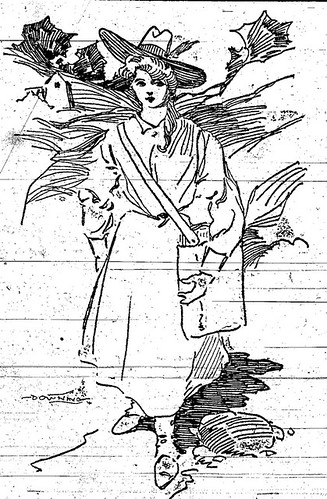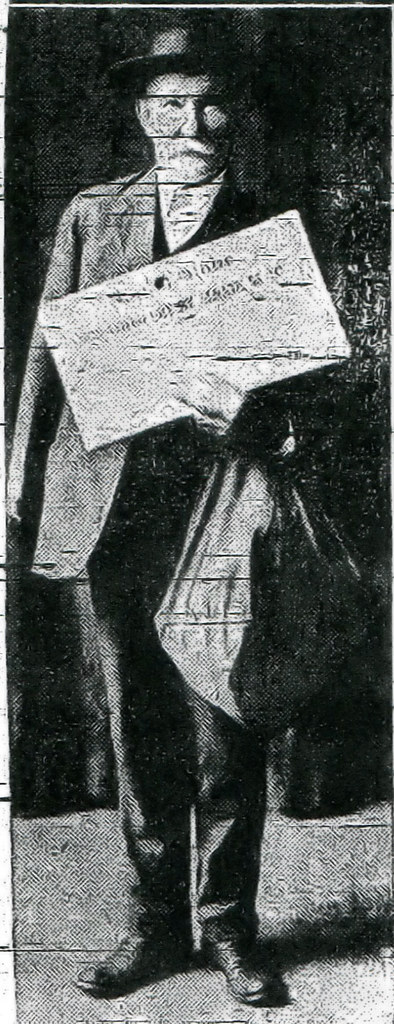“A great gentleman, a great writer, has gone.” So concluded an obituary in the St. Louis Post-Dispatch of the journalist Bart Howard. Among the many newspaper writers to pass through Joplin on the staffs of the News Herald and the Globe, Howard is among the most prominent.
Bart Howard was born in Worchester, Massachusetts in 1871. As a boy he walked the privileged halls of Phillips Exeter Academy. He attended Williams College where he excelled at athletics. Howard did not graduate from the school, but left early after upsetting the faculty with a paper which mocked certain giants of Greek history. From New England Howard eventually made his way to Joplin around 1901 and found a job with the News Herald. He initially provided coverage of Joplin’s triumphs and failures in the Missouri Valley baseball league. Howard had developed a love for the game in college, and briefly played professionally as a left handed second baseman as a means to supplement the meager income of a young journalist.
Howard did not remain merely a sports writer, but expanded to general news coverage. After a few years, the talented journalist was noticed by the owners of the Globe and they hired Howard away from their competitor and placed him on the editorial staff of the Globe. At the Globe, Howard rose to the position of managing editor, and oversaw Ben H. Reese, later a managing editor of the St. Louis Post-Dispatch and Wesley Winans Stout, later an editor of the Saturday Evening Post. It was also during his time in Joplin that Howard met and married Ann Picher, of the mining company Pichers.
For a number of years Howard worked at the Joplin Globe until once again his ability was noticed and this time hired by the St. Louis Post-Dispatch. In the Gateway City, he worked as a journalist before a brief return to Joplin, then found work in Columbus, Ohio and Oklahoma City, Oklahoma. Ultimately, Howard returned to St. Louis and the Post-Dispatch and became an editorial writer. It was in this capacity that Howard won the Pulitzer Prize in May, 1940 for a series of four editorials entitled, “Europe’s Emperor,” “After the Battle,” “The Golden Age,” and “The Kingdom of Democracy.” Not long after his win, Williams College opted to make their former student a Doctor of Humane Letters.
Howard was unable to enjoy his laurels. On February 12, 1941, he collapsed at lunchtime, dead of a heart attack. The Globe made sure to note the passage of its one time editor, a man who had traded the plush and privileged world of Massachusetts for the rough and tumble streets of Joplin. Howard may have also been one of the few professional baseball players to ever win the coveted Pulitzer. The Post-Dispatch printed summaries of the four editorials which had won Howard his great literary prize, and wrote lovingly of its former writer. An editorial by the paper said of Howard’s writings:
“Behind his writings was, above all, a great and passionate love for humanity and for justice. It was a humanitarian sense, a warm affection for all his fellows, that embraced their every activity. He could breathe righteous indignation into his pages of copy paper, when oppression or intolerance or corruption came into the news. The leavening shaft of humor served to debunk the pretensions of the pompous, or to reduce a raging controversy to its proper teapot proportions, but Bart Howard had a flaming sword in that typewriter when there were wrongs to oppose.”
The Post-Dispatch, as noted above, then concluded, “A great gentleman, a great writer, has gone.”
Sources: Missouri Digital Heritage, St. Louis Post Dispatch, and Joplin Daily Globe.


